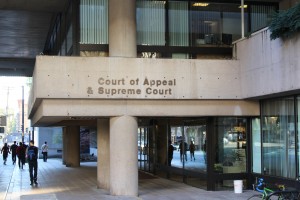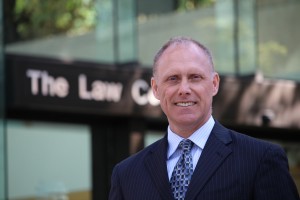- Will Lawyers In Canada Soon Face A Religious Test? The Hypersensitive Response Over Canada’s First Openly Christian Law School
- BC Law Society Approves TWU Law School Graduates
- The Cold Chill of the Legal Profession’s Rejection of Religious Freedom
- A Referendum On Religious Freedom
- Lawyers’ Referendum Not Just About TWU – It’s About Our Commitment To The Rule Of Law
- Called To Participate, But Not At The Table
- Hearing Update On Trinity Western University v. Nova Scotia Barristers’ Society
- Breaking News Supreme Court of Nova Scotia rules in favour of Trinity Western University …. more to come
- Space Enough For All: Nova Scotia Supreme Court Makes Decision on Trinity Western University Law School
- The Strange Case of Nova Scotia Barristers’ Society Appeal of the TWU Ruling
- CCCC Granted Intervener Status In TWU Case in British Columbia
- The Onward March of TWU: Next Step The Court of Appeal
- Trinity Western University and the Legal War of Attrition: Isn’t It Time To Let Diversity Flourish?
- Charitable Status of Un-Popular Opinion
- CCCC Denied Intervener Status at Ontario Court of Appeal
- CCCC Granted Intervener Status at the BC Court of Appeal on TWU Case
- Sending a Message to TWU: Your Graduates Need Not Apply
- Recent Happenings: CCCC Files Factum At BC Court of Appeal; Bussey appears on TV
- CCCC at the British Columbia Court of Appeal
- The Experts Demand Deference: Law Societies & TWU
- The Intolerance of Intolerance: The Outrageous Accusation That TWU’s School of Law Is Related To The Orlando Massacre
- Being On the Right Side of History: Where the Offended Take Away Religious Freedom
- Nova Scotia’s Highest Court Rules in Favour of TWU
- Common Sense Prevails at the Nova Scotia Court of Appeal
- Bussey on John Gormley Show
- Nova Scotia Barristers Society Will Not Appeal
- BC Court of Appeal On TWU
- Developing Story: BC Court of Appeal Rules 5-0 in favour of TWU
- The Decision That Has Changed Everything For TWU
- Law Society of BC Appeals TWU To Supreme Court of Canada
- Bussey in Vancouver Sun: Appeal court ruling on Trinity Western University is a game changer
- The Legal Revolution Against Religion
- Supreme Court Grants Leave On TWU
- Supreme Court Grants 9 But Denies 23 Groups Intervener Status In Landmark Case
- Canadian Council of Christian Charities Granted Intervener Status in TWU Case: The Supreme Court Changes Course On TWU Interveners
- Australian Group Interviews Bussey on Equality and Freedom of Religion
- Bruce Clemenger’s Video Message on TWU Case
- Oral Argument of CCCC on TWU at the Supreme Court of Canada
- June 15 TWU Decision To Be Released
- TWU Loses: Canada’s Religious Freedom Forever Altered
- The Constitutional Promise of Religious Freedom Betrayed
- TWU Drops Mandatory Community Covenant

Entrance to the British Columbia Court of Appeal
Barry W. Bussey, Director of Legal Affairs has just arrived in Vancouver to appear before the British Columbia Court of Appeal this week in the Trinity Western University case against the Law Society of British Columbia’s refusal to accredit TWU’s proposed School of Law. Canadian Council of Christian Charities was granted intervener status due to CCCC’s concerns about the freedom of religion for religious organizations.

Barry W. Bussey, Director of Legal Affairs, CCCC
Despite TWU’s proposed law school being approved by the Federation of Law Societies of Canada, and the BC Minister of Advanced Education, the Law Society of British Columbia (LSBC) decided to reverse its earlier approval. A referendum of BC lawyers called on the LSBC to reverse course. The controversy arises from the TWU’s admissions requirement that students sign a “Community Covenant” which outlines the code of conduct expected of its students. Among the list of behaviour requirements such as no alcohol consumption, honesty, and respect of others is the requirement that students abstain from sexual activity outside of marriage. Marriage is defined as between one man and one woman.
TWU sought a review of the LSBC’s reversal in British Columbia Supreme Court. The BC Supreme Court decided against the LSBC noting that it had “fettered its discretion” by accepting the referendum result without giving TWU procedural fairness as it sought to make its case.
Bussey will argue that central to a free and democratic society is the freedom of a religious community to operate its institutions in accordance with its faith without fear of hindrance or reprisal, much less actual hindrance, interference, and blatant restriction. LSBC is attempting to force TWU to abandon the practical and constitutionally recognized practice of its faith traditions, of its Community Covenant, as a condition of equal participation and treatment in society.
TWU’s request for a law school serves as a test of the Canadian legal academy and the legal profession’s commitment to the core principles of multiculturalism permitting a range of views and practices concerning marriage. In 2001 the Supreme Court of Canada reviewed TWU’s admissions requirements and decided in favour of TWU. In that case the Supreme Court stated, “The diversity of Canadian society is partly reflected in the multiple religious organizations that mark the societal landscape and this diversity of views should be respected.” For a complete copy of the CCCC factum click here.
The appeal will be held at the British Columbia Court of Appeal at 800 Hornby Street in Vancouver from Wednesday, June 1 through to Friday, June 3. The hearing will be presided over by Chief Justice Bauman and Justices Newbury, Groberman, Willcock, and Fenlon. The proceedings are open to members of the public.
Starting on Monday June 6 and continuing to June 8 the Ontario Court of Appeal will hear a similar case. The Ontario Divisional Ruled against TWU in that province and TWU has appealed that decision. CCCC was denied intervener status in Ontario. However, CCCC was also granted status in Nova Scotia and argued at the Nova Scotia Court of Appeal in early April. See the report on that hearing here.

